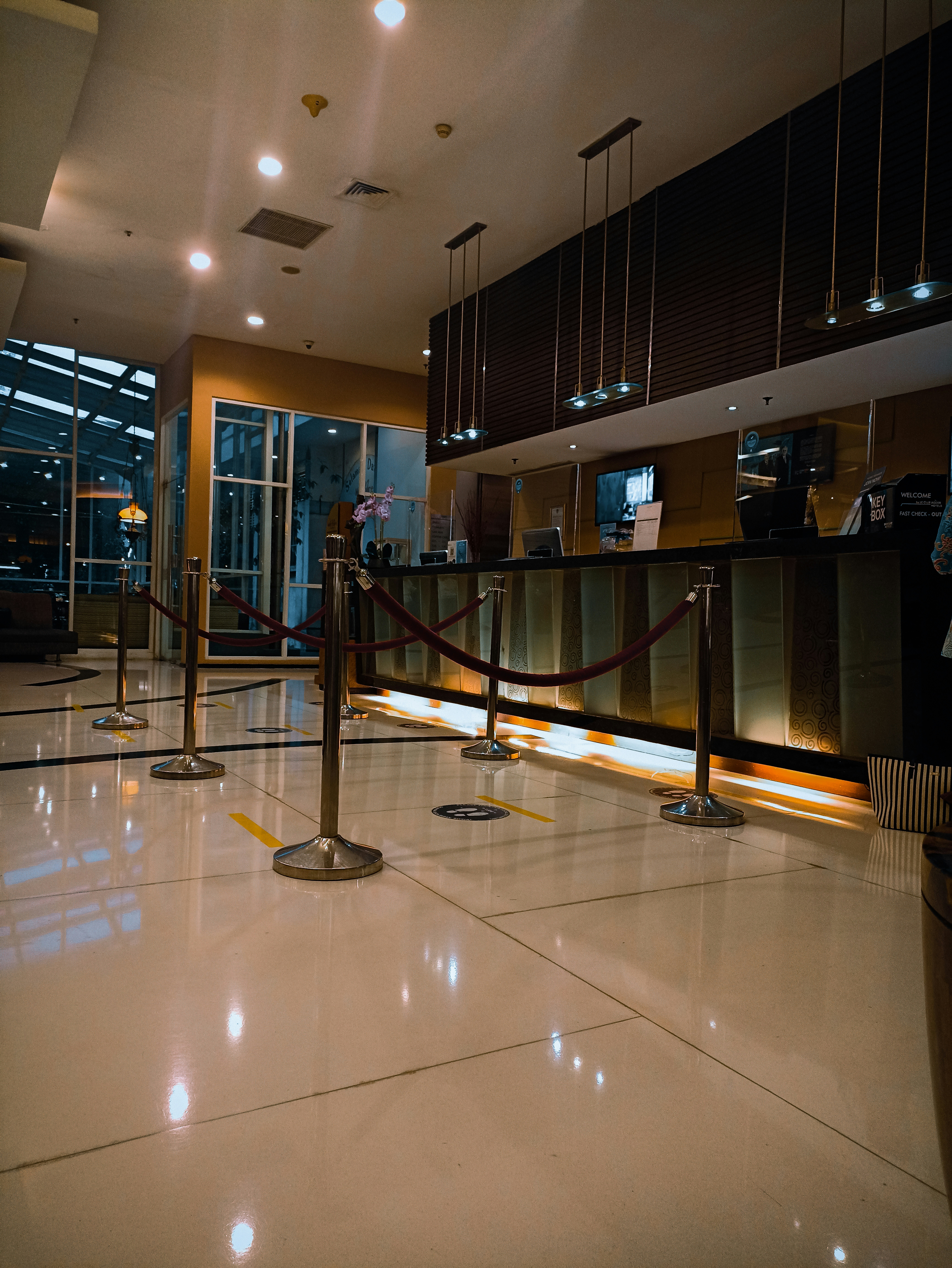The Essence of Hospitality
Hospitality is an age-old concept rooted in generosity and warmth, and it remains a pivotal element in creating extraordinary hotel experiences. At its core, hospitality transcends the mere provision of services; it encompasses an authentic commitment to guest satisfaction that resonates beyond the physical amenities offered. Exceptional hotels understand that their primary responsibility is not only to meet basic needs but to foster an environment that nurtures comfort and joy.
One of the fundamental principles of hospitality is attentiveness. Hotel staff members that are trained to observe guests’ subtle cues can tailor their interactions and services accordingly. This responsiveness, stemming from genuine attentiveness, makes guests feel valued and understood. For instance, a simple action, such as remembering a guest’s name or preference for morning coffee, can significantly enhance their experience, creating a strong sense of belonging and appreciation.
Warmth is another vital characteristic of an outstanding hospitality experience. When staff members display kindness and friendliness, it cultivates an inviting atmosphere that encourages guests to relax and unwind. The importance of a smile or a welcoming greeting cannot be underestimated, as these small gestures often set the tone for the entire stay. When guests feel welcomed, they are more likely to create lasting memories and share positive feedback, further contributing to the hotel’s reputation.
Lastly, genuine care from hotel personnel can turn an ordinary visit into an exceptional one. This involves going beyond standard service to connect authentically with guests, anticipating their needs, and offering personal touches that enrich their stay. Whether it’s accommodating a special request, providing local insights, or addressing concerns promptly, such expressions of genuine care cultivate loyalty and trust.
In conclusion, the essence of hospitality lies in the warmth, attentiveness, and genuine care extended by hotel staff. These core elements not only enhance the overall guest experience but also establish a lasting connection that distinguishes exceptional hotels in a competitive landscape.
Personalized Guest Experiences
In the contemporary hospitality landscape, the significance of personalized guest experiences cannot be overstated. Hotels that strive to create exceptional stays understand the value of tailoring services to meet the unique needs and preferences of each guest. This approach not only enhances satisfaction but also fosters a sense of belonging, making visitors feel more at home during their stay.
Personalization begins right from the booking process, where data collection regarding guests’ preferences, such as dietary restrictions, special occasions, or preferred room types, is vital. Many hotels utilize sophisticated customer relationship management tools to store and analyze this information, allowing them to provide tailored amenities upon arrival. For instance, guests may find their favorite snacks in the mini-bar or a handwritten welcome note awaiting them in their rooms, which illustrates the hotel’s commitment to personalized service.
Furthermore, crafting customized itineraries based on individual interests significantly enhances a guest’s stay. Hotels can collaborate with local tour providers or recommended restaurants to curate activities that align with a guest’s preferences. This tailored approach not only highlights the local culture and attractions but also allows guests to experience the destination in a way that resonates with them personally. Whether it’s a relaxing spa day or an adventurous hike, the key is to create memories that are meaningful to each visitor.
Additionally, empowering staff to recognize and anticipate guest needs contributes greatly to personalized experiences. Training team members to deliver bespoke service fosters genuine interactions and helps in building lasting relationships. All these elements culminate in a hotel stay that transcends the ordinary, leading guests to feel valued and appreciated. A strong focus on personalization is, therefore, not just a trend, but a substantial investment in guest satisfaction that can set a hotel apart in a competitive market.
The Impact of Design and Ambiance on Guest Experience
The design and ambiance of a hotel play a fundamental role in shaping the overall guest experience. Architecture sets the first impression; it not only defines the aesthetic appeal but also influences how guests perceive the hotel. A well-designed exterior can evoke a sense of grandeur or tranquility, reflecting the hotel’s unique brand identity. For instance, contemporary designs may attract a youthful clientele, while historic structures often appeal to those seeking a charming, nostalgic experience. Thus, the architecture serves as the foundational element of a guest’s stay.
Interior decor is equally significant, as it directly affects guests’ comfort and enjoyment. Well-chosen furnishings, artwork, and color palettes create a cohesive atmosphere that resonates with visitors. Each component contributes to a narrative, allowing guests to immerse themselves in the hotel’s theme. Attention to detail in decor can elevate the environment, making it feel more luxurious or homely, depending on the hotel’s objectives. The harmonious integration of these aesthetic elements fosters a sense of belonging and enhances overall satisfaction.
Lighting also plays a crucial role in a hotel’s ambiance. Natural light can uplift spirits and promote a connection to the surrounding environment, while strategically placed artificial lighting can create warmth and intimacy in communal spaces. Different lighting techniques can evoke various moods, affecting how guests interact with the space. Furthermore, the use of scent in public areas or guest rooms can significantly enhance the ambiance, providing comfort and recognition. A distinct, pleasing fragrance can become synonymous with the hotel’s identity, making it memorable to visitors.
In a competitive hospitality market, the importance of effective design and ambiance cannot be overstated. They are central to enhancing guest experiences, fostering emotional connections, and reinforcing brand identity, all of which contribute to a hotel being perceived as truly exceptional.
Exceptional Dining Experiences
When evaluating what makes a hotel truly exceptional, one cannot overlook the importance of top-tier dining options. A hotel could provide luxurious accommodations and stunning views, but the culinary experience plays an equally vital role in shaping a guest’s overall impression. Exceptional dining experiences often begin with a diverse and thoughtfully-curated menu. Hotels that understand local culinary traditions while also incorporating international flavors can provide guests with the opportunity to embark on a gastronomic journey, catering to diverse palates and dietary preferences.
The quality of ingredients used is another critical factor in crafting memorable meals. Hotels that prioritize fresh, seasonal, and locally-sourced ingredients not only enhance the flavor profiles of their dishes, but also support local communities. This commitment to quality not only distinguishes an establishment but also fosters a sense of responsibility and sustainability among guests, making their dining experience feel more enriching.
Furthermore, the ambiance of the dining spaces significantly impacts guest satisfaction. Whether it’s a cozy, intimate bistro or a lavish rooftop restaurant with panoramic views, the atmosphere should complement the culinary offerings. Thoughtful decor, comfortable seating, and appropriate lighting can create an inviting environment that encourages guests to enjoy their meal leisurely, effectively allowing the dining experience to linger in their memories long after the plates have been cleared.
Equally important is the role of exceptional service in the dining experience provided by hotels. Attentive staff who possess extensive knowledge of the menu can engage guests and elevate their culinary journey through personalized recommendations, ensuring that each meal is tailored to individual tastes. It is this combination of variety, quality, ambiance, and service that ultimately defines the extraordinary dining experiences that set exceptional hotels apart from the rest.
Creating Memorable Impact Through Unique Amenities
In the competitive landscape of the hospitality industry, providing unique amenities is essential for hotels aiming to deliver exceptional guest experiences. Amenities such as spas, fitness centers, and swimming pools not only enhance the overall appeal of a hotel but also contribute significantly to guest satisfaction. Spas, for instance, can transform a simple visit into a relaxing retreat. Incorporating wellness-focused services and treatments allows hotels to cater to guests who seek rejuvenation and tranquility during their stay.
Furthermore, well-equipped fitness centers can captivate health-conscious travelers. Offering state-of-the-art equipment, personal training sessions, and fitness classes affirms a hotel’s commitment to the well-being of its guests. This focus on health and fitness is particularly attractive to a demographic that seeks to maintain their routine while traveling, thereby setting a hotel apart from others in the area.
Swimming pools also play a crucial role in enhancing a hotel’s reputation. A thoughtfully designed pool area, whether it’s an infinity pool with breathtaking views or a family-friendly space with dedicated activities, provides guests with opportunities for leisure and relaxation. A pool can serve as a social hub for guests, creating an environment where memorable experiences are shared and enjoyed.
Equally important, concierge services within the hotel can make a significant difference in a guest’s overall experience. Knowledgeable staff can offer personalized recommendations and assist in planning unique outings, restaurant reservations, and local experiences. When hotels prioritize intuitive and informed service, they create strong connections with guests, fostering loyalty that transcends a single visit.
Ultimately, the inclusion of unique amenities, whether relaxation options or vibrant social spaces, establishes not just a pleasant stay, but a remarkable experience that encourages guests to return. A hotel that invests in these elements not only elevates its brand but positions itself as a leader within the industry.
The Power of Exceptional Customer Service
Exceptional customer service is a cornerstone of the hospitality industry, significantly shaping a guest’s perception of a hotel. It transcends the mere provision of amenities and clean rooms, establishing an emotional connection with guests that can influence their overall experience. The role of well-trained staff is paramount in delivering this level of service. Empowering employees to make informed decisions allows them to respond promptly to guests’ needs, ensuring that complaints are addressed swiftly and effectively.
Training programs should be designed to instill a sense of autonomy in team members, giving them the confidence to take initiative when responding to guest inquiries or rectifying issues. This might include role-playing scenarios to prepare staff for various situations or providing them with the tools to resolve problems without always needing managerial approval. Additionally, continuous training and feedback help in refining their skills while reinforcing the hotel’s commitment to exceptional customer service.
Handling guest grievances effectively is another crucial aspect of exceptional customer service. It is essential for hotel staff to view complaints as opportunities to enhance the guest experience rather than as setbacks. A structured approach to resolving issues can ensure that guests feel heard and valued. Implementing a feedback mechanism allows the hotel to track common problems and address them proactively, thereby fostering a culture of improvement.
Furthermore, cultivating a culture of excellence among employees is vital. Leadership should model the values of exceptional customer service and recognize team members who exemplify these principles. This not only boosts morale but also reinforces a unified approach to providing outstanding service. When every staff member is aligned on the importance of customer experience, the hotel can transform into a destination where guests feel welcomed, appreciated, and eager to return.
Sustainability and Responsible Tourism
As the global awareness of environmental issues continues to rise, the hospitality industry is increasingly recognizing the importance of sustainability and responsible tourism. Hotels around the world are adapting by implementing eco-friendly practices that not only reduce their carbon footprint but also enrich the travel experience for guests. By focusing on sustainable practices, hotels can appeal to environmentally conscious travelers, fostering loyalty among those who prioritize responsible choices when planning their vacations.
One notable approach that many hotels have adopted involves integrating renewable energy sources into their operations. From solar panels to wind turbines, these initiatives not only help to minimize energy consumption but also showcase a hotel’s commitment to sustainability. Moreover, hotels are increasingly opting for energy-efficient appliances and smart technologies that reduce resource consumption without compromising on guest comfort. The implementation of such practices significantly elevates a hotel’s appeal to guests who are concerned about their environmental impact.
Supporting local communities is another essential aspect of responsible tourism that exceptional hotels are embracing. By sourcing food and products from local suppliers, hotels not only contribute to the local economy but also offer guests an authentic experience that reflects the region’s culture. Engaging in community initiatives, like organizing clean-up drives or supporting local artisans, demonstrates a hotel’s commitment to being a responsible member of the community, further enhancing its reputation among travelers. Additionally, showcasing local culture through workshops or cultural events can enrich the guest experience while promoting sustainable tourism practices.
Ultimately, by integrating sustainability into their operations and supporting local communities, hotels can distinguish themselves in a competitive market. The fusion of eco-friendly practices and responsible tourism not only enhances the guest experience but also builds customer loyalty among those increasingly dedicated to preserving the planet for future generations.
Engagement with the Local Culture
One of the defining attributes of exceptional hotels is their ability to immerse guests in the local culture. This goes beyond offering a simple place to stay; it involves creating an environment where the surroundings come alive through authentic experiences. By embedding local culture into their offerings, hotels not only enhance guest satisfaction but also forge a deep connection between the visitors and the destination.
Partnering with local artisans, chefs, and cultural institutions can significantly enrich a hotel’s portfolio of experiences. For instance, collaborations with skilled craftspeople allow hotels to offer workshops where guests can learn traditional crafts or culinary skills. Such interactions provide visitors with unique insights into the region’s heritage while supporting the local economy.
Moreover, organizing cultural events such as music festivals, art exhibitions, or food fairs can attract both guests and local residents, facilitating meaningful exchanges between cultures. When hotels actively participate in such events, they establish themselves as community hubs, positioning themselves as more than mere lodging facilities. This engagement creates a sense of belonging for guests, enabling them to experience the destination as locals do.
Additionally, providing guests with opportunities for authentic local tours enhances their overall experience. Hotels can curate itineraries featuring guided tours that explore not only famous landmarks but also hidden gems often overlooked by tourists. Such excursions help guests appreciate the richness of the local environment, fostering memorable experiences that continue long after their departure.
Ultimately, the integration of local culture into a hotel’s offerings is a powerful tool for creating a truly exceptional guest experience. By encouraging engagement with the local community and promoting genuine interactions, hotels transform a routine stay into an unforgettable adventure, enriching the lives of visitors and contributing to the cultural fabric of the location.
The Influence of Technology on Modern Hospitality
Technology has significantly reshaped the landscape of modern hospitality, leading to an evolution in how hotels interact with their guests. Innovations such as mobile check-ins have streamlined the arrival process, allowing guests to bypass lengthy queues at the front desk. By utilizing mobile applications, visitors can easily check in remotely, select room preferences, and receive digital room keys, all from the convenience of their smartphones. This not only enhances guest satisfaction but also optimizes hotel operations by reducing the staff workload during peak periods.
In addition to mobile check-ins, smart room controls have emerged as a game-changer, providing guests with personalized experiences that cater to their unique preferences. Through integrated systems, guests can adjust temperature settings, lighting, and even entertainment options with the touch of a button or simply through voice commands. This level of customization fosters a more comfortable and inviting environment, ultimately enhancing overall guest satisfaction. Furthermore, smart technology can facilitate energy efficiency initiatives, contributing to both economic and environmental sustainability.
Personalized mobile applications also play a pivotal role in redefining the hotel experience. These applications enable guests to access a range of services, from room service to scheduling spa appointments, all while receiving tailored recommendations based on their previous interactions and preferences. Such personalization not only streamlines services but significantly elevates the guest experience by creating a sense of familiarity and exclusivity. With continuous advancements in artificial intelligence and machine learning, hotels are better equipped to anticipate guest needs and tailor their offerings accordingly.
As technology continues to evolve, it is apparent that its influence on modern hospitality will only magnify. Hotels that embrace these innovations position themselves to deliver exceptional experiences, ultimately ensuring guest loyalty and satisfaction in an increasingly competitive market.


